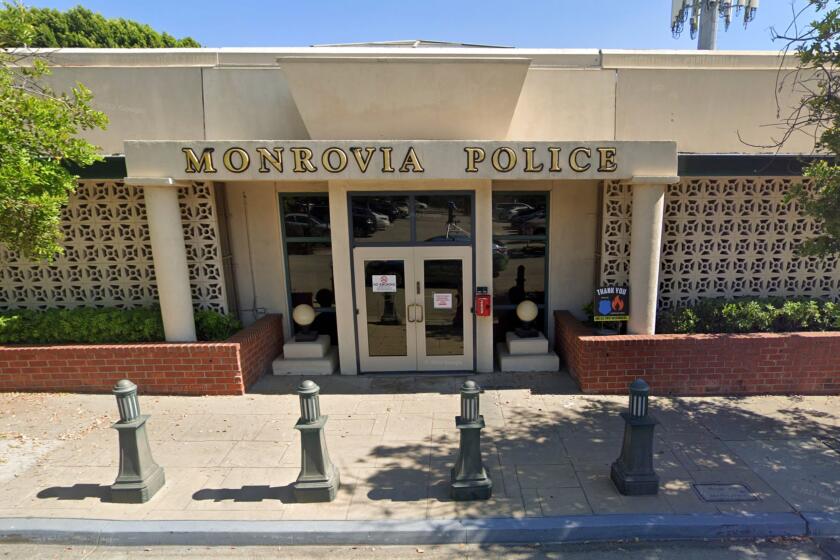LAFCO Exec Fails to Register as Lobbyist
The government official in charge of shaping how Los Angeles would be split apart under proposals for a municipal breakup declined Friday to register as a City Hall lobbyist.
The official, Larry J. Calemine, has received tens of thousands of dollars in fees from developers and other clients for advice on winning City Hall approval of their real estate projects in the San Fernando Valley, according to records and interviews.
But his lawyer, Ronald B. Turovsky, told the Los Angeles City Ethics Commission on Friday that Calemine’s private consulting business did not entail efforts to influence city decisions.
“We have thoroughly investigated Mr. Calemine’s activities and conclude that Mr. Calemine was not required to register as a lobbyist,” Turovsky said in a letter to Bruce Aoki, the director of the commission’s lobbying disclosure program.
Calemine is paid $100,000 a year as the full-time executive officer of the Local Agency Formation Commission for Los Angeles County, the autonomous agency weighing cityhood proposals by the San Fernando Valley, Hollywood and the harbor area.
It is a powerful job. He is drafting the plans that would be used to slice apart the city if voters approve breakup proposals that LAFCO could put before voters next year. His sideline as a real estate consultant has raised concerns that the public’s interest in the secession proceedings could conflict with his clients’ interests. The nine commissioners who oversee his work plan to review Calemine’s outside income Wednesday at a meeting closed to the public.
The Ethics Commission, citing reports in The Times, asked Calemine last week to register retroactively as a lobbyist or explain why he was not required to do so. On Friday, his lawyer told the panel that Calemine “did not communicate directly with any city official for the purpose of influencing any decision.”
“To the extent there was any face-to-face conversation with any city official, the conversation was not for the purpose of influencing” city decisions, and he was not paid for such encounters, Turovsky wrote.
A Century City lawyer, Rob Glushon, has told The Times that he and Calemine lobbied City Councilman Hal Bernson to support a zoning change for a health club parking lot in Northridge. Calemine reported receiving more than $10,000 in fees from Glushon’s law firm in 1999 for his work on the project. Both Calemine and Bernson have refused to comment on the matter.
Under city law, anyone who is paid at least $4,000 in a three-month period for lobbying activities must register with the Ethics Commission. Lobbyists must disclose who pays them, how much and why.
The commission defines lobbying as “direct communications” with city officials, “providing advice or recommending strategy” to a client, researching an issue or monitoring officials’ public meetings. It applies to efforts to influence both legislation and agency decisions, including zoning changes.
Calemine and several of his clients have told The Times they paid him for advice on how to win City Hall approval of their real estate projects in the Valley.
More to Read
Start your day right
Sign up for Essential California for news, features and recommendations from the L.A. Times and beyond in your inbox six days a week.
You may occasionally receive promotional content from the Los Angeles Times.







